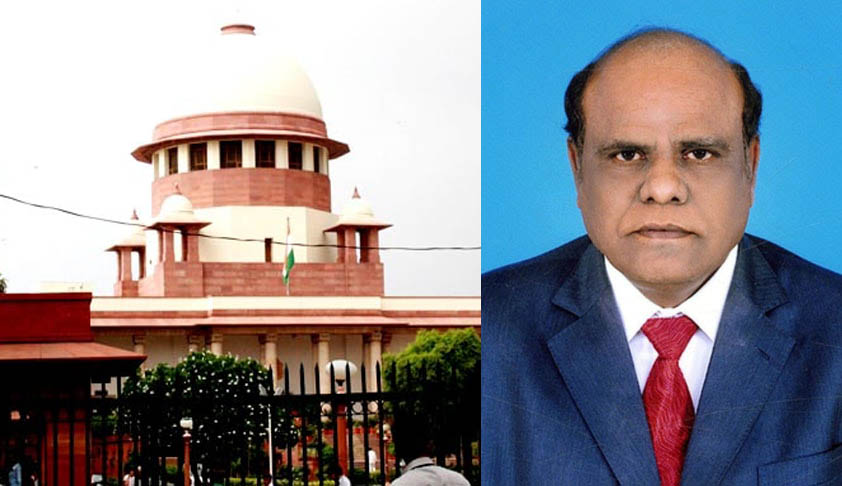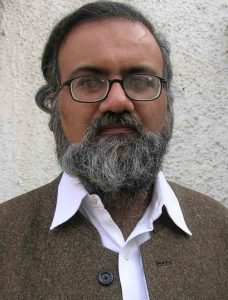Caste And Judiciary: An Analytical Look
Rakesh Shukla
19 March 2017 2:30 PM IST

The repeated refrain of Justice C.S. Karnan of the Calcutta High Court that the consequences which have followed his erratic and unbalanced behaviour are in fact illustrations of caste discrimination can only serve to undermine and make a mockery of the serious issue of caste and judiciary.
A pointer to the relation between caste and the judiciary is an interview of noted constitutional expert and jurist Fali Nariman on the occasion of the release of his book on the Indian Legal System in 2006 where he states: “Former law minister P Shiv Shankar, a dalit, told me that as policy, in some states, if two justices have to be sworn in on the same day, the guy from the preferred community is sworn in first, so that the guy from the non-preferred community doesn’t supersede him in becoming chief justice”. (‘Fali S Nariman at the Express’, Indian Express, September 3, 2006.)
Reflections on Judgments
The law dealing with contempt of court forbids the imputing of motives or biases to a judge. However, it may be instructive to look at some judgments of courts dealing with offences under the Protection of Civil Rights Act, 1955 (PCRA) and the SC/ST (Prevention of Atrocities Act, 1989 (Atrocities Act).
Krishnan Naynar case
In 1996, a case was filed against Krishnan Naynanar an ex Chief Minister of Kerala under PCRA as well as the Atrocities Act for making “casteist” remarks against one Kuttappan while contesting a by-election to the Kerala legislative assembly from the Thalassery assembly constituency. The complaint was that Nayanar, at a convention of the Left Democratic Front at the Town Bank auditorium, made the remark: “ ‘The other thing, that harijan, one Kuttappan, he was dancing on the table’. This was what Naynanar stated quite contemptuously”. There were witnesses who had also deposed that more or less the statement had been made, with a little difference in wording. Even though the statute provides that an act against a person belonging to the scheduled caste category shall be presumed to be on the ground of untouchability, the Kerala High Court held that no offence under PCRA can be made out as it cannot be said that “the complainant was insulted or attempted to be insulted on the ground of untouchability”. Coming to the Atrocities Act, the Court ruled that though the incident was admittedly in public view, yet the offence of insult or humiliation was not complete, as the complainant Kuttappan was not present at the public meeting. The court went on to observe that it was only offences like dumping excreta, waste matter, and carcasses within the premises of a member of the SC community, which need not be necessarily done in the presence of the person insulted! (E Krishnan Nayanar vs Dr M A Kuttappan, Member Kerala Legislative Assembly, 1997 CrLJ 2036, Kerala High Court.)
Phulsing’s case
Phulsing, a Lodhi thakur and ex-Malgujar had been taking “begar” from Balla, who was a chamar. Phul Singh had got Balla’s house demolished and abducted Balla’s wife for five days. In addition, Phulsingh had threatened to overrun Balla by his tractor and kill him. Balla reported the matter to the police and while he was returning Phulsing shouted at Balla “Chamra mere virudh report kyon ki, main tumse manhani ke 5,000 rupaye loonga” (“you chamar, why did you make a report against me, I will take Rs 5,000 from you for defamation”). In a second case, Phulsing had a land dispute with Parsadi, also a chamar by caste. Phulsing threatened and abused Parsadi by saying “Chamra ***** jagah chod dena nahi to goli maar doonga” (“you chamar, ****** leave the place otherwise I will shoot you dead”). Phulsing also wrongfully stopped Parsadi’s wife who was passing along a road in front of his house and said to her “Yahan se chamriya nikli to lat marenge, tere bap ka rasta nahi nahin”(“you chamariya, if you pass this way I will kick you, it is not your father’s road”.)
Two separate cases came to be registered against Phulsing – one with regard to the incident involving Balla, and the other, with respect to Parsadi and his wife – for insults on the ground of untouchability under section 7(d) PCRA. The Madhya Pradesh High Court acquitted Phulsing in both the criminal cases with respect to Balla as well as Parsadi and his wife with a rather puzzling observation, “Now calling a chamar a chamar may be insulting him but it would not be an insult on the ground of untouchability”.
The court decreed that even a “casteist” abuse hurled at a member of a scheduled caste might not amount to insult on ground of “untouchability”, if there are other issues involved between the parties. It is pertinent to note that the quarrels that form the backdrop of “casteist” abuses, insults and humiliations are in fact themselves rooted in the caste location of the individuals concerned. PCRA has been enacted to concretise and make real the abolition of untouchability under the Constitution and if two interpretations in law are possible, then the one that furthers the intention and object of the legislation is to be favoured over the other. However, the judgment held that regardless of the presumption under section 12 of the PCRA i.e. that the court must presume that an act was on the ground of untouchability, in the present case the insults were “insults simpliciter” and not on the ground of untouchability. (Phulsing vs State of Madhya Pradesh 1991 Crl L J 2954.)
Inter-caste Dining
Enforcing any social disability on the ground of untouchability with regard to use of utensils kept in restaurants, hotels, dharamshalas, sarais is an offence under PCRA. The Karnataka High Court in a case where separate cups and saucers were kept for harijans, acquitted the hotel proprietor on the grounds of a 12-hour delay in filing the complaint, the prosecution witnesses being related to each other and that the complaint did not specifically mention that the accused had kept the utensils separately. (State of Karnataka versus Irappa, 1981 CRl LJ NOC 104 (Kant).
Preventing any person from exercising any right accruing to him by reason of the abolition of untouchability under section 17 of the Constitution is an offence under the PCRA.20 Similarly, encouraging any person or class of persons or the public by words, signs or otherwise to practise untouchability21 and insulting or attempting to insult a member of a scheduled caste22 are offences under the PCRA.
One Duni Chand had invited all the residents of the village, including harijans, for meals at his house in connection with the wedding of his son. The seven accused persons arrived there when Nanku, son of Dharu, and Chana, son of Sukhiya, who were both harijans, were taking their meals. The accused allegedly stated that they would not take their meals at the house. They also apparently turned out Nanku and Chana from there. The Supreme Court held that the evidence of the complainant, Duni Chand and the eyewitnesses, was of a general nature and none of the witnesses had stated with reference to any of the accused the specific words used by them at the relevant time. The Court held that no offence under section 7 PCRA was made out and set aside the conviction of the accused persons. (Sriniwas vs Duni Chand (1997) 7 SCC 522.)
Self-correction
In a series of workshops I conducted on ‘Minimizing the Impact of Biases, Prejudices and Stereotypes on the Judicial Decision making Process’ with judges at the Delhi Judicial Academy, National Judicial Academy and Karnataka Judicial Academy caste though an important component of the Indian psyche proved to be the most difficult area to access. The mechanism of correction envisaged in the legal system is appeal to a higher court. An aggrieved party in appeal gets an opportunity to show the flaws in the judgment of the lower court. However, the grounds which can be taken in appeal are in the domain of law. As far biases and prejudices in areas like caste, class, religion, gender and sexual orientation are concerned, self-correction by judges is the only recourse.
 Rakesh Shukla is an Advocate practising in the Supreme Court of India and Consultant, International Psychoanalytical Association Committee of Psychoanalysis and Law.
Rakesh Shukla is an Advocate practising in the Supreme Court of India and Consultant, International Psychoanalytical Association Committee of Psychoanalysis and Law.
[The opinions expressed in this article are the personal opinions of the author. The facts and opinions appearing in the article do not reflect the views of LiveLaw and LiveLaw does not assume any responsibility or liability for the same]


